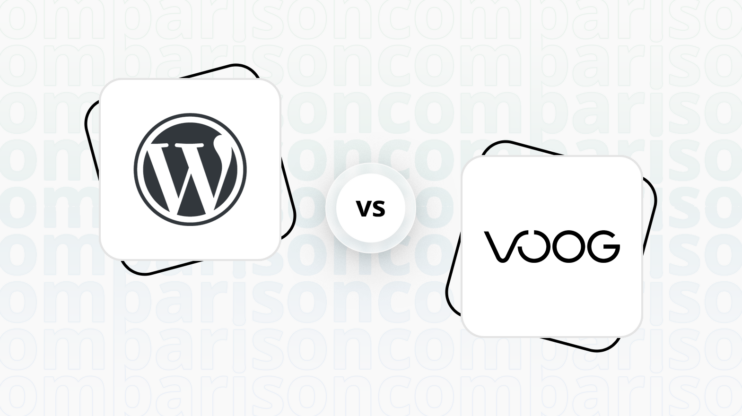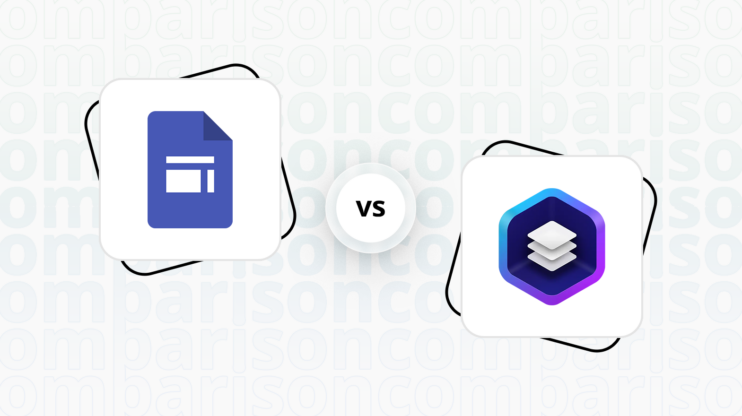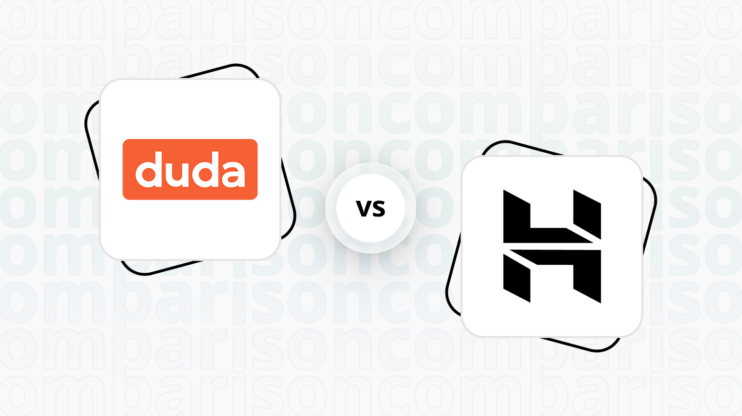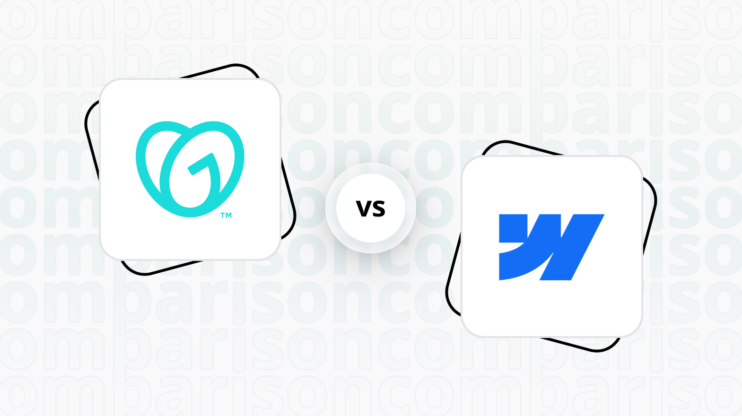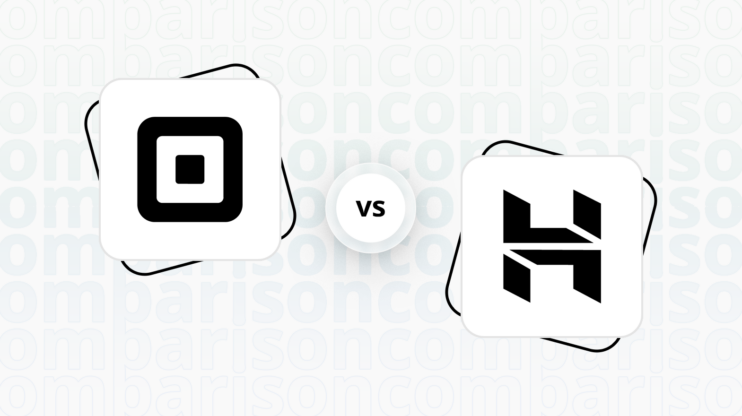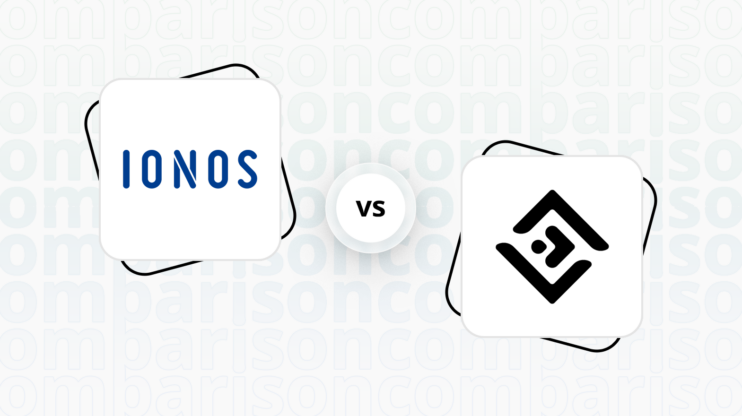Final verdict
Blocs vs Jimdo: Both platforms offer unique strengths, but they cater to different user needs.
-
Blocs (Overall Grade: 5.8/10)
is a powerful and user-friendly website builder designed specifically for Mac users. It excels in design functionalities and ease of use, particularly for those with some web design experience. Blocs offers a wide range of features, including responsive design and pre-made templates, making it an ideal choice for designers and developers. However, it lacks built-in hosting and has limited ecommerce capabilities compared to Jimdo. Blocs is best suited for users who prioritize design flexibility and are comfortable with a slightly steeper learning curve. -
Jimdo (Overall Grade: 7.2/10)
stands out for its simplicity and ease of use, making it a great option for beginners and small businesses. Jimdo offers a comprehensive suite of features, including built-in hosting, ecommerce capabilities, and a variety of templates. It excels in customer support, security, and AI capabilities, providing a well-rounded platform for users with basic computer skills or limited time. When comparing Blocs vs Jimdo, Jimdo is the preferred choice for those seeking an all-in-one solution with minimal effort.

|

|
|
|---|---|---|
|
Design functionalities & templates |
7.5 |
7.2 |
|
Ease of use |
8.7 |
8.0 |
|
Ecommerce |
7.0 |
7.0 |
|
Website Editors |
7.5 |
7.8 |
|
Product testing options |
7.0 |
6.4 |
|
Price |
9.0 |
7.5 |
|
Hosting quality |
0 |
6.7 |
|
Website speed optimization |
5.2 |
7.6 |
|
Plugins and integrations |
6.8 |
7.4 |
|
Marketing features |
6.9 |
7.2 |
|
Customer support |
5.1 |
6.8 |
|
Security |
0.0 |
8.3 |
|
AI capabilities |
5.4 |
6.0 |
|
User Management |
1.4 |
5.8 |
Best for ecommerce
 7.0
7.0
 7.0
7.0
Verdict
: Blocs and Jimdo both score 7.0 in the ecommerce category, indicating they offer comparable ecommerce capabilities. However, their approaches and features cater to different user needs.
-
Blocs
: Blocs supports ecommerce through integration with leading service providers like Stripe, Snipcart, and Ecwid. This flexibility allows for a range of ecommerce functionalities, but it might present a learning curve for beginners. Blocs is ideal for users who prefer a visual design tool with the ability to integrate various ecommerce solutions. -
Jimdo
: Jimdo simplifies the process of launching an online store with built-in ecommerce features. Its intuitive drag-and-drop interface and built-in marketing tools make it a great choice for users with basic computer skills or limited time. Jimdo offers easy product management, secure payment processing, and mobile-friendly shopping experiences, making it suitable for small businesses and ecommerce entrepreneurs.
Best for informational & business websites
 7.5
7.5
 7.4
7.4
Verdict
: Blocs and Jimdo are both strong contenders for creating informational and business websites, but Blocs edges out slightly due to its higher score and robust design functionalities.
-
Blocs
: Blocs is a powerful website builder designed specifically for Mac users. It offers a user-friendly visual interface and a wide range of pre-designed blocks, making it easy to create professional websites without coding. With a score of 7.5, Blocs is ideal for designers and developers looking for a versatile tool to create modern, responsive websites with minimal effort. -
Jimdo
: Jimdo is a user-friendly platform suitable for a wide range of users, from individuals to small businesses. It stands out for its simplicity and ease of use, making it particularly beneficial for those with basic computer skills or limited time. With a score of 7.4, Jimdo provides a straightforward website building experience with flexible templates and AI-driven tools, making it a solid choice for beginners.
Detailed comparison
Design functionalities & templates
Design FunctionalitiesRepresents how well each platform allows for creative design and customization of websites.Score Components:
- Template Variety (30%): Range and quality of design templates.
- Customization (30%): Flexibility and options for design alterations.
- User Interface (20%): Ease and intuitiveness of the design process.
- Responsiveness (10%): Adaptability to different devices and screen sizes.
- Innovation (10%): Unique design features and tools.
 7.5
7.5
 7.2
7.2
🏆
Winner: Blocs.
If you’re a Mac user looking for a powerful and user-friendly website builder with a wide range of design templates and customization flexibility, Blocs is the preferred choice.
Blocs website builder offers a vast selection of design templates, boasting over 36 layouts for various website types, including business, e-commerce, personal portfolios, and photography, catering to a wide range of user needs. These templates are designed to be responsive, ensuring optimal display across different devices, from desktops to smartphones.
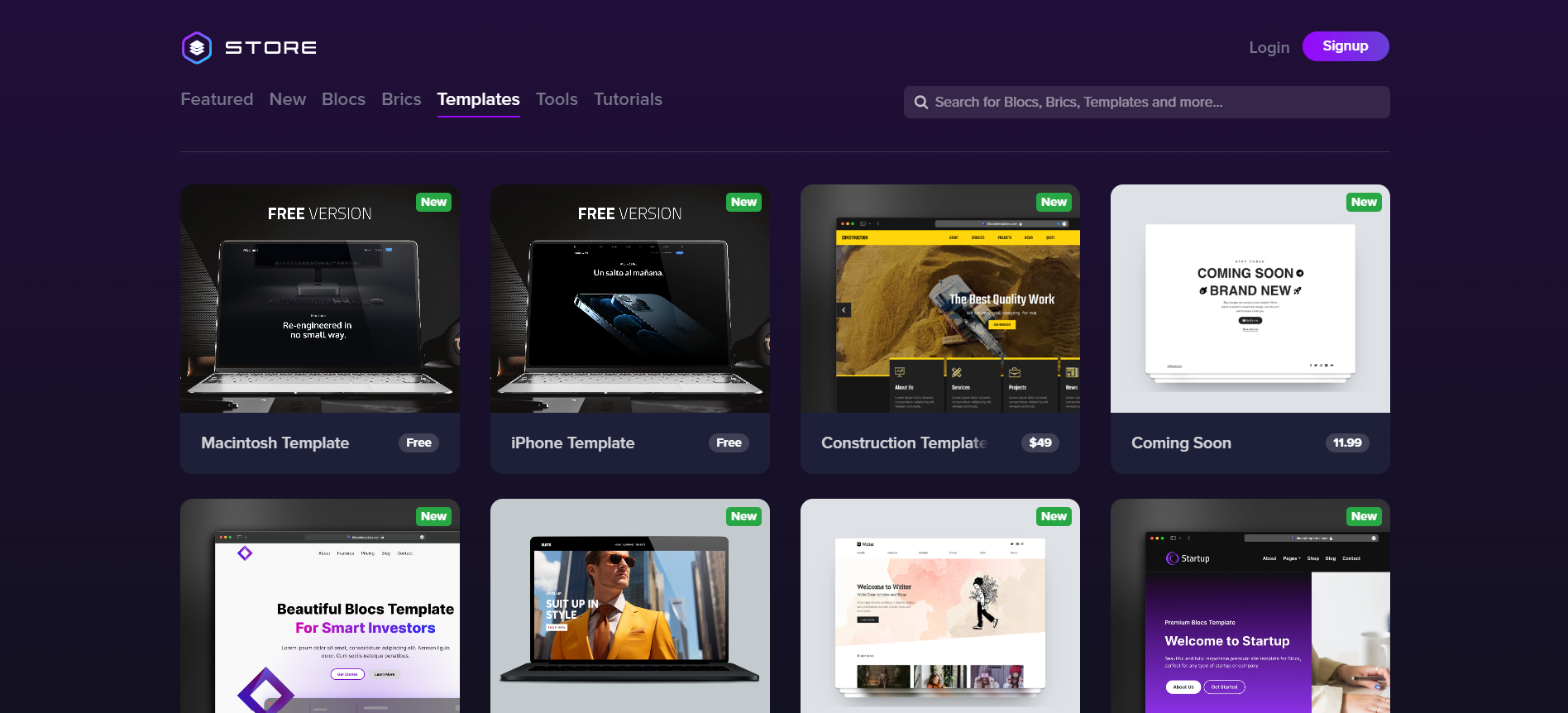
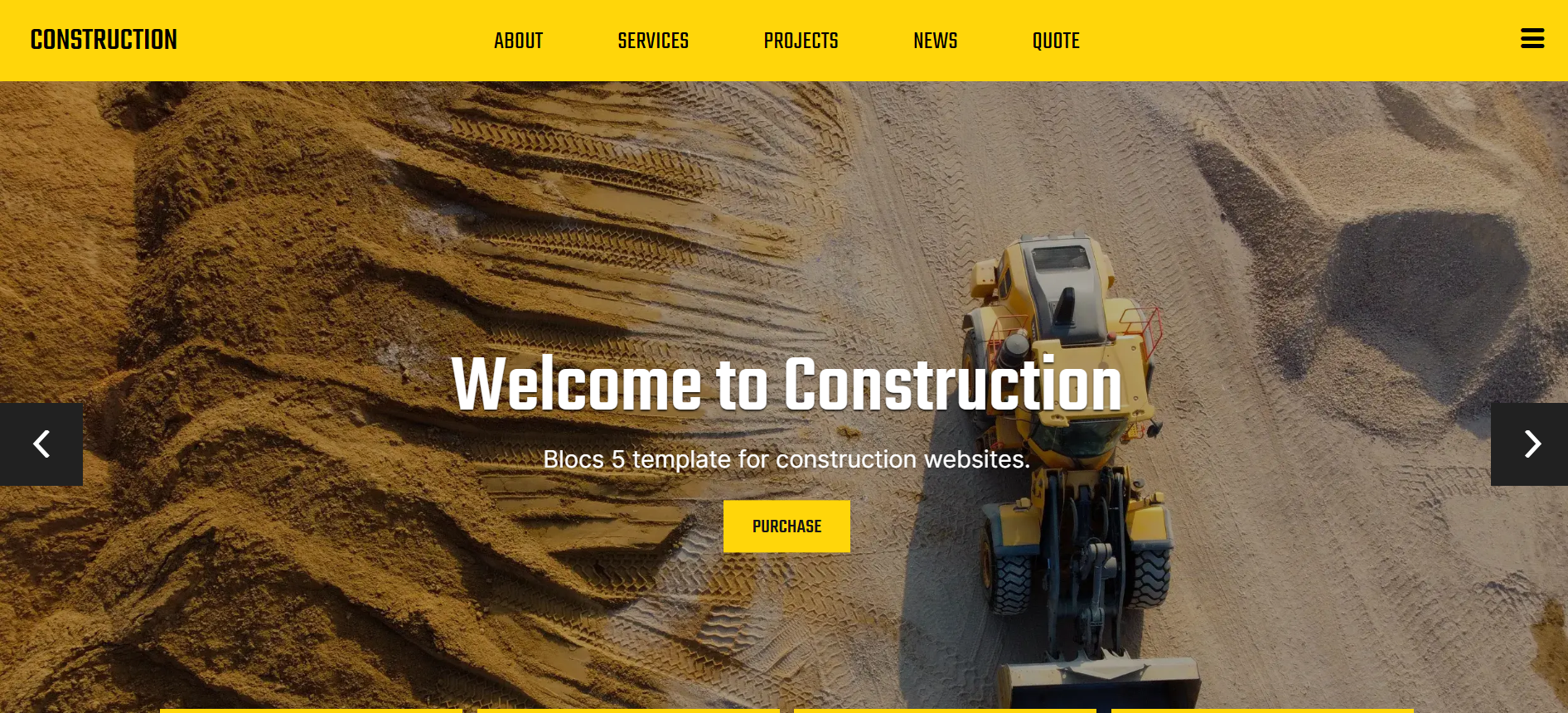
Compared to Blocs, Jimdo offers a diverse range of templates suitable for various industries and user preferences, with options to preview and select templates easily. The platform allows flexibility in changing templates for existing websites and also provides a “Blank Template” for custom designs, catering to both beginners and advanced users.
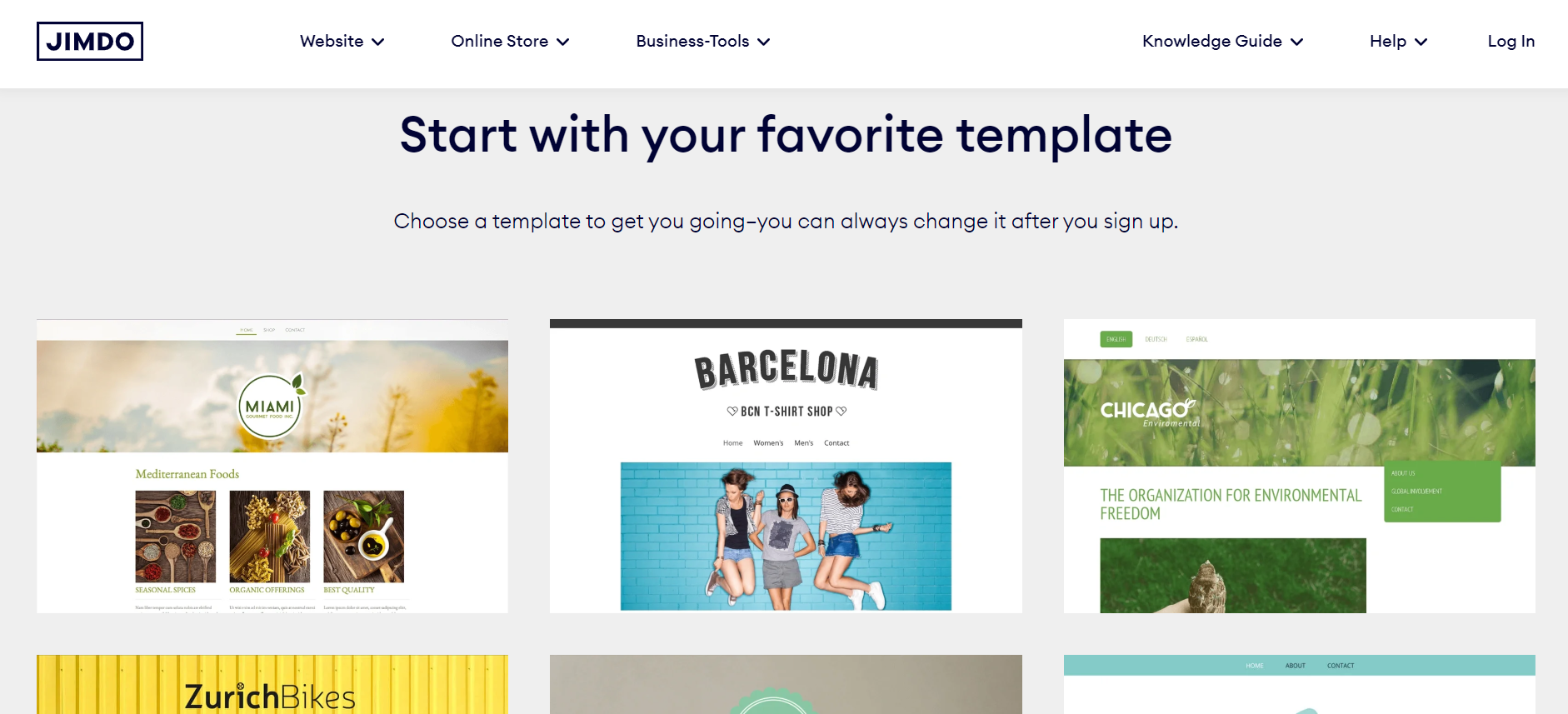

Get a head start on website creation with AI
Create a custom website tailored to your business needs 10X faster with 10Web AI Website Builder!
Ease of use
Ease of useReflects the platform’s overall user-friendliness.Score
Components:
- Learning curve (40%): Quickness and ease of getting started.
- Interface design (30%): Simplicity and intuitiveness of layout.
- User guidance (20%): Quality of tutorials and support.
- Flexibility (10%): Adaptability to various user skills.
 8.7
8.7
 8.0
8.0
🏆 Winner: Blocs
. Scoring 8.7, Blocs is highly regarded for its user-friendliness and versatility, particularly among Mac users. It offers a robust platform for both novices and professional coders. Jimdo, with a score of 8.0, is praised for its simplicity and ease of use, particularly for beginners. However, Blocs takes the lead in this category due to its higher score and versatility.
Learning Resources
🏆 Winner: Blocs
. Both platforms offer solid learning resources, but Blocs goes a step further with its comprehensive suite of learning resources through its learning portal and Blocs Academy. Jimdo provides user-friendly learning resources and tools that cater to both beginners and those with some experience in website design.
For ecommerce
EcommerceMeasures the platform’s effectiveness in supporting online business activities.Score Components:
- Ecommerce themes and templates (20%): Variety and design of templates.
- Product management (25%): Ease of managing and organizing products.
- Payment options (25%): Variety and convenience of payment methods.
- Ecommerce features (20%): Features for managing an ecommerce store.
- Integration (10%): Compatibility with external e-commerce tools and services.
 7.0
7.0
 7.0
7.0
Blocs and Jimdo both score 7.0 in the ecommerce category, indicating that they offer comparable ecommerce capabilities.

|

|
|
|---|---|---|
|
Ecommerce themes and templates |
7.8 |
6.5 |
|
Product page customization |
6.5 |
6.8 |
|
Payment processing and commissions |
7.0 |
7.5 |
|
POS capabilities |
0.0 |
5.0 |
|
Payment gateways |
7.5 |
7.0 |
|
Product numbers |
6.0 |
6.0 |
|
Additional ecommerce features |
7.2 |
6.5 |
Blocs ecommerce features:
- Stripe integration
- Snipcart shopping cart integration
- Gumroad integration
- Ecwid integration
Jimdo ecommerce features:
- Product details and variations
- Inventory tracking
- No transaction fees
- Discount codes and promotions
- Email marketing
Blocs supports ecommerce through integration with leading service providers, enabling features such as buy buttons, checkouts, and complete storefronts with services like Ecwid, Stripe, Snipcart, Paddle, and Gumroad. However, as a visual design tool aimed mainly at web designers and developers, it might present a learning curve for complete beginners or those looking for simpler, more intuitive ecommerce solutions.
On the other hand, Jimdo simplifies the process of launching an online store by providing built-in ecommerce features. With an intuitive drag-and-drop interface, users can effortlessly design a professional storefront without coding. Key features include easy product management, secure payment processing through gateways like PayPal and Stripe, mobile-friendly shopping experiences, and built-in marketing tools with SEO and social media integrations.
When it comes to ecommerce themes and templates, Blocs provides a range of ecommerce-specific templates, allowing users to quickly launch optimized online stores or business platforms. These premium templates are designed to be fast, visually appealing, and SEO-friendly, ensuring websites look great on all devices and load quickly.
Jimdo’s ecommerce templates offer a diverse range of pre-designed themes, ensuring a mobile-friendly and smooth shopping experience. The drag-and-drop interface allows for easy customization of colors, fonts, and layouts, while templates focus on showcasing products with dedicated sections for images, descriptions, and clear calls to action.
In terms of product page customization, Blocs primarily offers ecommerce features through third-party ecommerce platforms such as Ecwid, so the product page customization possibilities vary depending on which platform is integrated. Jimdo, however, allows users to personalize various elements of the product page using its user-friendly interface.
For payment processing, Blocs supports ecommerce through integrations with third-party ecommerce providers, suggesting flexibility in the use of various payment gateways. Blocs does not charge transaction fees or commissions, however such fees may be charged by the payment gateways or e-commerce platforms themselves. Jimdo facilitates payment processing through various popular gateways like PayPal, Stripe, Mollie, and more, depending on your location and plan. While Jimdo doesn’t impose transaction fees, individual payment gateways may have their own charges.
Website Editors
Website EditorsEvaluates the platforms’ website building and editing capabilities.Score Components:
- Customization tools (40%): Range and power of editing features.
- Editor usability (30%): User experience within the editor.
- Design flexibility (20%): Freedom in layout and design changes.
- Update and maintenance ease (10%): Simplicity of updating and maintaining the site.
 7.5
7.5
 7.8
7.8
🏆
Winner: Jimdo
. Jimdo, with a score of 7.8, offers two main modes: Jimdo Dolphin and Jimdo Creator. Dolphin, an AI-driven tool, is ideal for beginners and creates websites based on user responses to a series of questions, streamlining the web design process. On the other hand, Jimdo Creator provides a more traditional website building experience with greater customization options, including a drag-and-drop editor and HTML widgets, catering to users seeking more control over their site’s design.
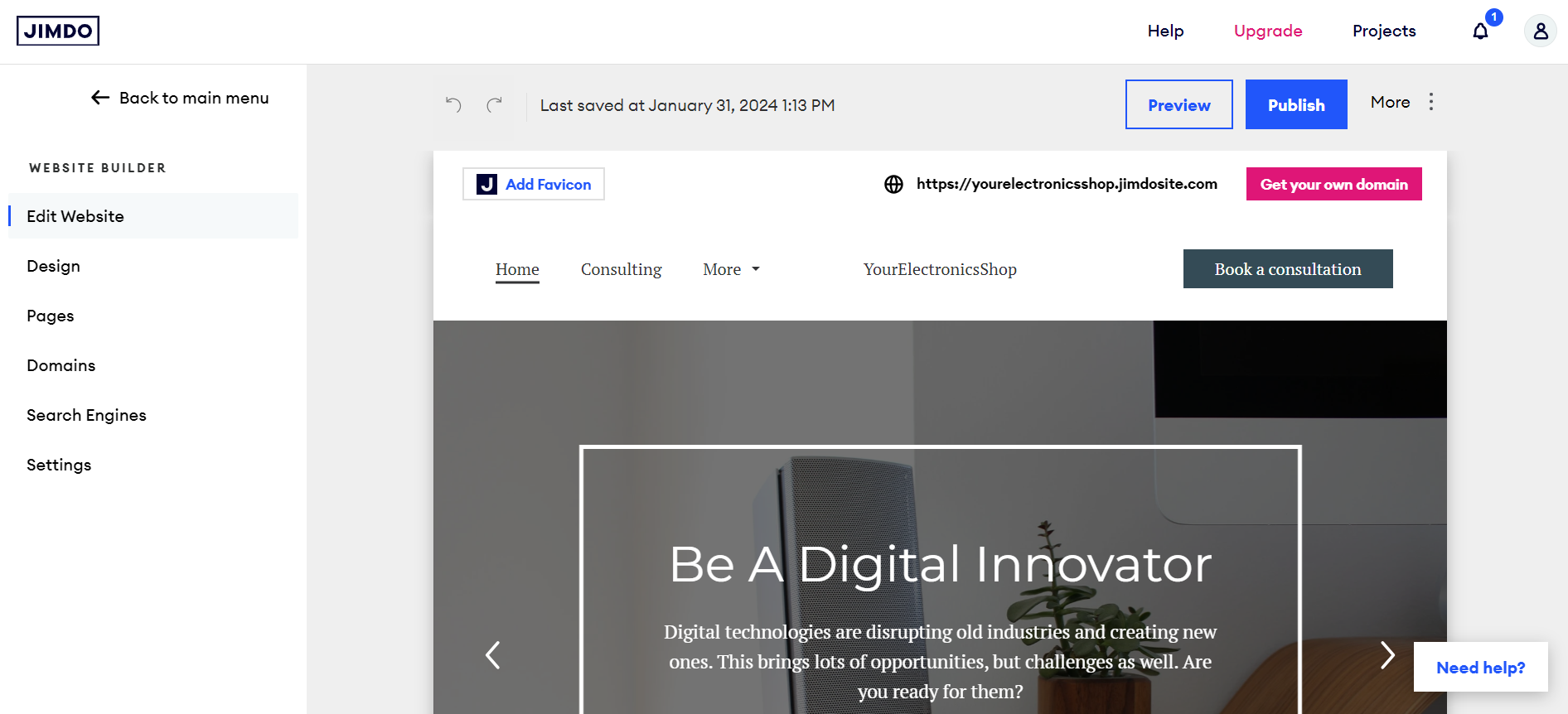
Blocs, scoring 7.5, is a user-friendly web design tool that enables the creation of modern, responsive websites without needing to code. It utilizes a block-based interface with drag-and-drop functionality, making web design accessible to designers and creatives without technical backgrounds. The app offers a variety of pre-designed blocks, integration options, and SEO tools to streamline the website creation process. Blocs stands out for its intuitive design process, allowing users to quickly bring their website visions to life with minimal effort.
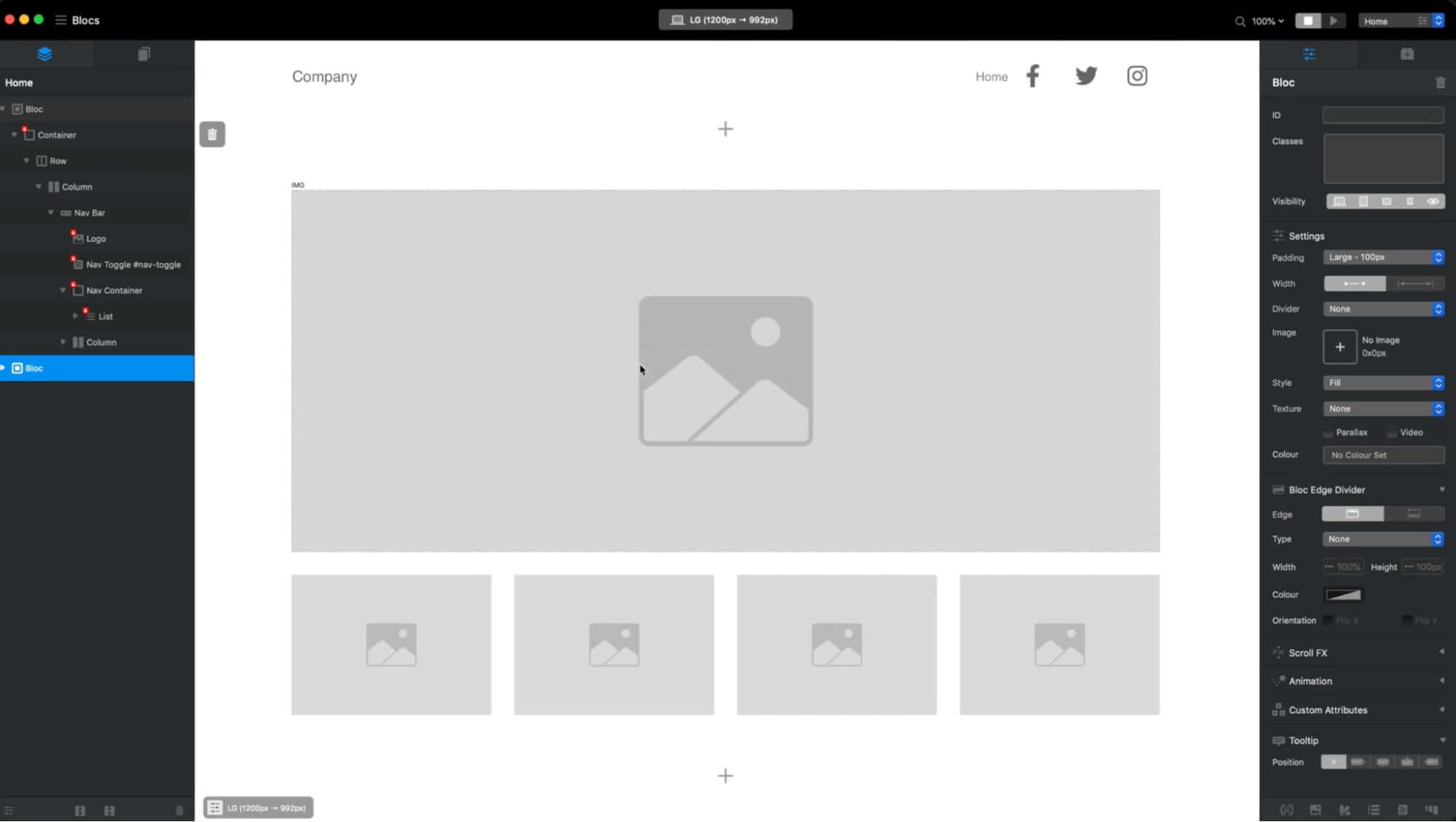
Mobile editor/app
 8.5
8.5
 8.0
8.0
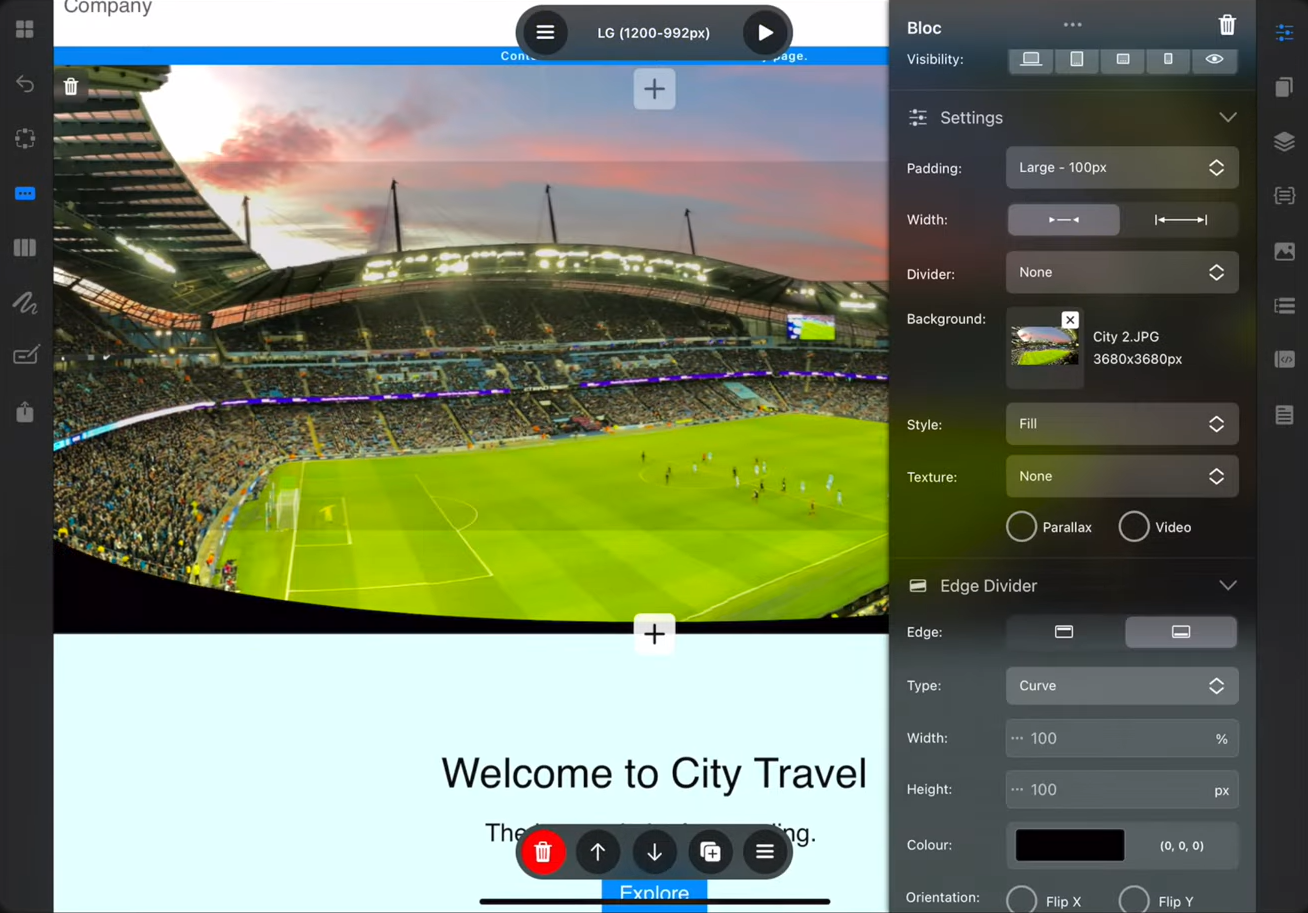
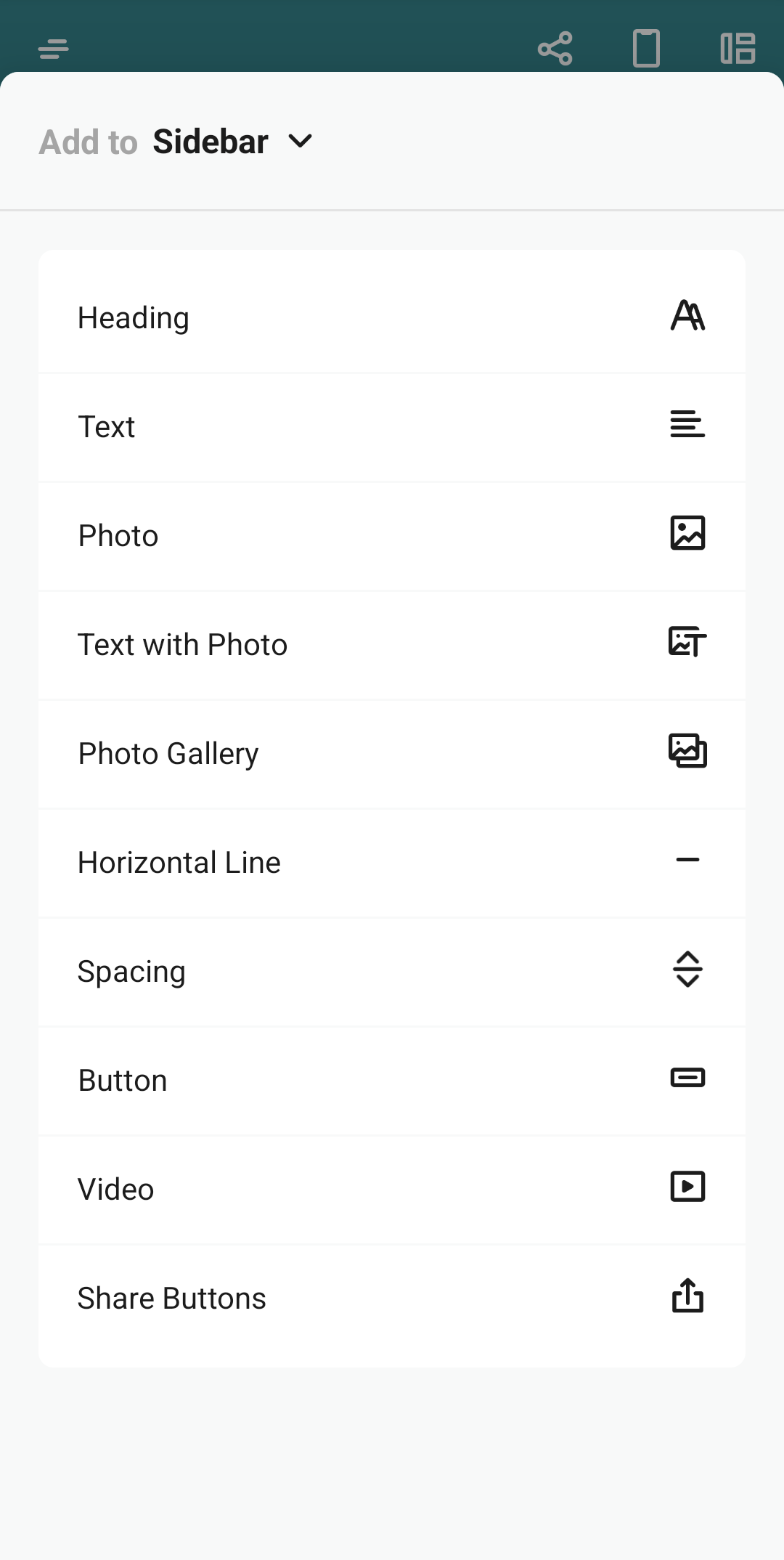
🏆
Winner: Blocs
. Both Blocs and Jimdo offer mobile apps for managing your website, but they cater to different needs and user preferences. Blocs provides a touch-first interface designed specifically for iPad users, offering a flexible and efficient solution for building professional websites. This app includes all the essential features needed to create various types of websites, making it an ideal choice for users who prefer to work on an iPad.
Jimdo, on the other hand, offers a mobile editor app that allows users to create and manage their websites directly from their smartphones or tablets. This app provides a convenient way to edit and update your site on the go, including adding or modifying content, adjusting design elements, and managing your online store. However, it may not offer the same level of flexibility and efficiency as the Blocs app for iPad users.
In summary, while both apps offer robust mobile editing capabilities, Blocs edges out Jimdo due to its iPad-specific design and efficient website building features.
Product testing options
Product Testing OptionsAssesses the options for trying out platform features before commitment.Score Components:
- Trial quality (40%): Extent and usefulness of the trial or free version.
- Feature accessibility (30%): How many features are available to test.
- Trial duration (20%): Length of the trial period.
- Ease of transition (10%): Smoothness of moving from trial to paid plans.
 7.0
7.0
 6.4
6.4
Overall Result
:
Blocs wins
. Blocs scores 7.0, slightly higher than Jimdo’s 6.4. Blocs offers a trial version where users can test some of the features of the website builder, including premium ones, within a 14-day refundable period. Jimdo, on the other hand, allows users to explore basic features with the free plan, and for more advanced options, they can be tested by subscribing to any of the paid plans. Both platforms offer a 14-day money-back guarantee.

|

|
|
|---|---|---|
|
Free Plan |
No | Yes |
|
Trial Duration |
Yes | No (14-day money-back guarantee) |
|
Testing Premium Features |
Yes (within 14-day refundable period) | Yes (with paid plans) |
|
Money-Back Guarantee |
14-day money-back guarantee | 14-day money-back guarantee |
Price
PriceLooks at the cost-effectiveness and value for money of each platform.Score Components:
- Plan value (40%): What each pricing tier offers.
- Transparency and clarity (30%): Clearness of pricing structures.
- Flexibility of plans (20%): Range of options to suit different budgets.
- Hidden costs (10%): Additional expenses not included in the plan.
 9.0
9.0
 7.5
7.5
Blocs offers a one-time payment plan with no subscription required, making it a cost-effective choice for Mac users. Jimdo, on the other hand, offers a range of plans with monthly or annual subscriptions, catering to a wider range of users from individuals to small businesses.

|

|
|
|---|---|---|
|
Free |
No offering at this amount. |
Play ($0/month): Basic, entry-level plan offering limited features, ideal for testing Jimdo’s capabilities. Includes 500MB storage and up to 5 website pages. Limited ecommerce functionality. |
|
$0-$10 |
No offering at this amount. |
Start ($9/month): Aimed at small projects or businesses just starting out. Provides 5GB of storage and up to 10 website pages, along with SEO tools for online visibility. Not directly focused on ecommerce. Value for price: 6.0 |
|
$10-$15 |
No offering at this amount. |
Grow ($15/month): Targets growing businesses needing more space and features. Offers more flexibility but still lacks dedicated ecommerce capabilities compared to the Business plan. Provides 20GB bandwidth with up to 50 website pages. Value for price: 7.0 Basic ($15/month): Up to five forwarding email addresses, up to 10 website pages, convenient payment methods. Value for price: 6.5 |
|
$15-$20 |
No offering at this amount. |
Business ($19/month): Designed for small to medium-sized online stores, offering ecommerce features without transaction fees. Includes selling on Facebook and Instagram, and various payment options. And up to 50 website pages. Value for price: 8.0 |
|
$30-$50 |
Blocs Plus (+$49.99): An add-on to the Blocs 5 plan, providing additional features such as the ability to build custom WordPress themes without writing code, extract typography, assets, and color schemes from any website, a productivity-boosting image editor, a class styles library manager, and an SEO helper. Value for price: 8.5 |
VIP ($39/month): Provides comprehensive features for large or expanding online stores, including unlimited storage and priority support and unlimited website pages. Includes professional design review and no transaction fees. Value for Price: 9.0 Unlimited ($39/month): Offers unlimited bandwidth and storage, up to 20 forwarding email addresses and unlimited website pages. Includes priority support and professional design reviews. Value for Price: 9.5 |
|
$90+ |
Blocs 5 ($99.99): This plan offers a native Mac app with no subscription required. It allows building unlimited websites, works offline, includes animations & scroll FX, powerful interactions, no page limit, font manager, writer mode, auto backup, all V5 updates, and email support. A Blocs license can be used on one Mac and all future Blocs V5 updates come for free. Value for price: 8.0 |
No offering at this amount. |
location. As a result in rare cases the prices displayed here can differ from the ones you see on their
websites.
Hosting quality
Hosting
qualityExamines the reliability and performance of the hosting solutions.Score Components:
- Uptime (40%): Consistency and reliability of website availability.
- Speed (30%): Loading times and performance.
- Bandwidth and storage (20%): Sufficiency of resources provided.
- Data centers (10%): Quality and distribution of hosting infrastructure.
 0
0
 6.7
6.7
🏆
Winner: Jimdo
Jimdo offers hosting in all of its plans, with varying storage and bandwidth limits. The type of hosting offered by Jimdo includes shared hosting, cloud hosting, and managed hosting. However, Jimdo does not offer an uptime guarantee, and its uptime is 99.5%. The exact locations of Jimdo’s data centers are not publicly disclosed, but they are spread across multiple regions. Blocs, on the other hand, does not offer hosting, which is why it has a hosting quality score of 0.

|

|
|
|---|---|---|
|
Do they offer hosting? |
No |
Yes, included in all plans |
|
Data Centers: |
No hosting is offered |
Not publicly disclosed |
|
Type of hosting: |
No hosting is offered |
Shared Hosting, Cloud Hosting, Managed Hosting |
|
Uptime: |
No hosting is offered |
99.5% |
|
Uptime Guarantee: |
No hosting is offered |
No |
Website Speed Optimization
Website Speed OptimizationEvaluates optimization of website loading timesScore Components:
- PageSpeed Score (30%): Google’s score indicating performance optimization.
- Loading Time (30%): The average time until a website is fully interactive.
- Mobile Optimization (15%): Optimization effectiveness for mobile devices.
- Resource Optimization (15%): Optimizing images, scripts, and other heavy resources.
- CDN Usage (10%): Use of CDN to enhance speed across geolocations.
 5.2
5.2
 7.6
7.6
🏆 Winner: Jimdo
Both Blocs and Jimdo prioritize website performance and page speed, but Jimdo’s comprehensive approach to speed optimization gives it an edge over Blocs.

|

|
|
|---|---|---|
|
Focus |
WebP Generation |
Content Optimization, CDN, Image optimization, Caching, Mobile Responsive design |
|
Performance Tools |
Not specified |
Not specified |
|
Key Strategies |
WebP Generation |
Content Optimization, CDN, Image optimization, Caching, Mobile Responsive design |
|
Load Times |
Varies depending on optimization and website complexity |
Varies widely, dependent on optimization |
|
Page Speed Scores Range |
Not specified |
Scores vary; influenced by plugins, images |
|
Core Web Vitals Improvement |
Not disclosed |
Optimizing LCP, Enhancing FID, Improving CLS |
Jimdo’s approach to enhancing site speed includes content optimization, use of content distribution networks (CDN), image optimization, caching, and mobile responsive design. These strategies, combined with a focus on improving Core Web Vitals (Largest Contentful Paint, First Input Delay, and Cumulative Layout Shift), give Jimdo a comprehensive approach to speed optimization. However, the actual load times and PageSpeed scores can vary widely, depending on the level of optimization and the complexity of the website.
On the other hand, Blocs focuses on WebP Generation for speed optimization. The actual load times and PageSpeed scores can vary depending on the level of optimization and the complexity of the website. Blocs does not disclose any information about its improvements in Core Web Vitals.
Get a head start on website creation with AI
Create a custom website tailored to your business needs 10X faster with 10Web AI Website Builder!
Plugins and integrations
Plugins and integrationsMeasures the range and effectiveness of additional plugins and integrations.Score Components:
- Variety of options (40%): Range of available add-ons.
- Integration smoothness (30%): Ease of integrating plugins into the site.
- Quality of plugins (20%): Functionality and reliability of the options.
- Custom integration capabilities (10%): Support for custom or third-party integrations.
 6.8
6.8
 7.4
7.4
🏆 Winner: Jimdo.
With a score of 7.4, Jimdo offers a wider range of plugins and extensions, including those from major providers like POWr and Elfsight. These plugins enhance website functionality and cater to diverse business and marketing needs. Blocs, scoring 6.8, also offers a variety of custom-made add-ons and extensions, but Jimdo’s broader range and user-friendly customization options give it the edge.
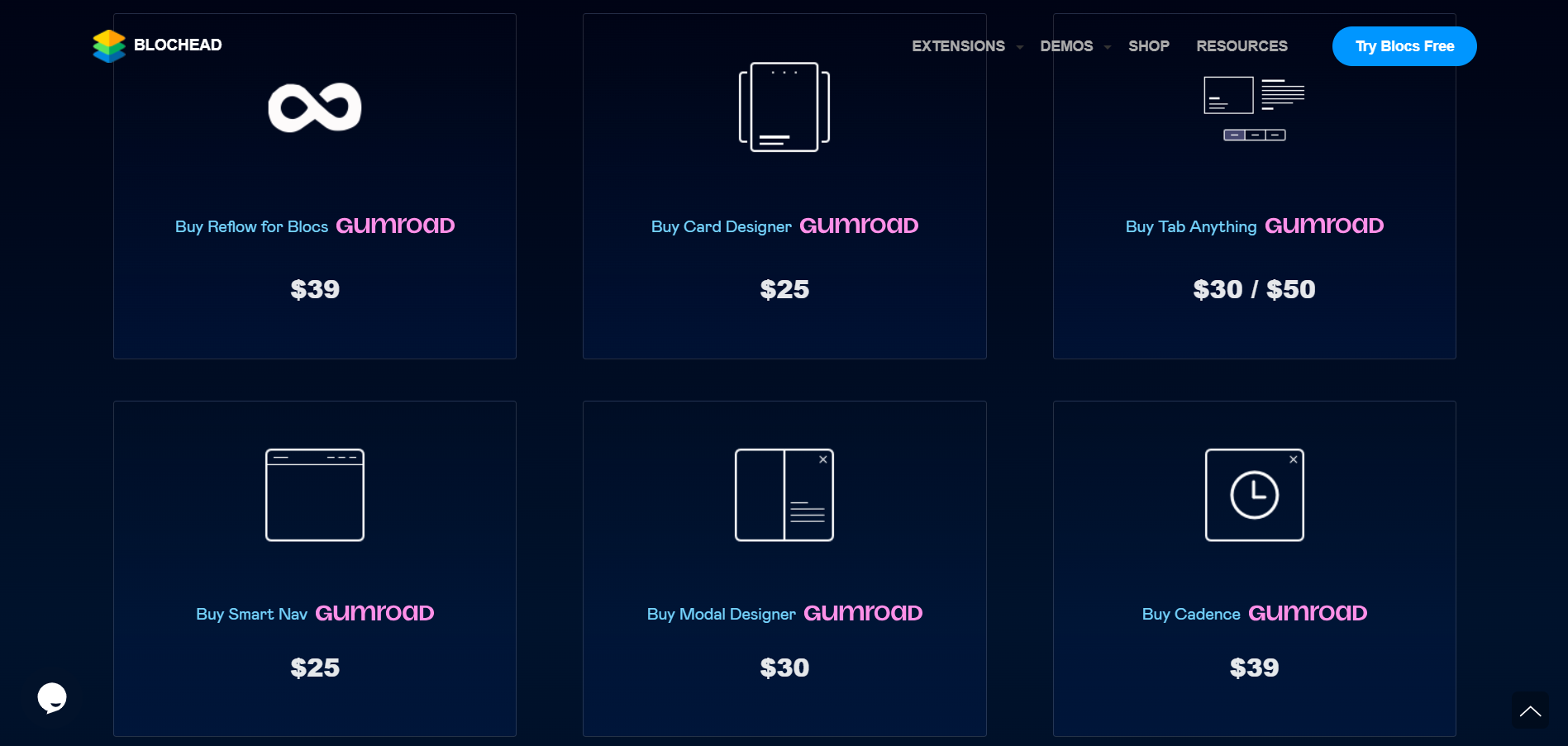
Marketing Features
Design FunctionalitiesRepresents how well each platform allows for creative design and customization of websites.Score Components:
- Template Variety (30%): Range and quality of design templates.
- Customization (30%): Flexibility and options for design alterations.
- User Interface (20%): Ease and intuitiveness of the design process.
- Responsiveness (10%): Adaptability to different devices and screen sizes.
- Innovation (10%): Unique design features and tools.
 6.9
6.9
 7.2
7.2
🏆
Overall Winner: Jimdo
. Jimdo edges out Blocs with a slightly higher score, offering a more comprehensive suite of marketing tools. While both platforms offer SEO tools, email marketing, blogging, social media integration, and analytics, Jimdo also provides tools for ads and promotions, which Blocs lacks.

|

|
|
|---|---|---|
|
SEO Tools |
|
|
|
Email Marketing |
via Mailchimp integration |
|
|
Blogging |
|
|
|
Social Media Integration |
|
|
|
Analytics and Reporting |
via Google Analytics integration |
|
|
Ads and Promotions |
|
|
Customer Support
Customer supportEvaluates the quality and availability of support options.Score Components:
- Response time (40%): Speed of support responses.
- Support quality (30%): Effectiveness and helpfulness of the support.
- Availability (20%): Range of support channels (phone, chat, email).
- Resource richness (10%): Quality of self-help and educational materials.
 5.1
5.1
 6.8
6.8
🏆 Winner: Jimdo
. Comparing Blocs vs Jimdo, Jimdo takes the lead in this category with a higher customer support score and a more comprehensive support system. Jimdo offers multiple support channels, including email, a call center, and social media support, which cater to a wide range of user needs. Although it lacks live chat support, its extensive knowledge base and specific request forms provide users with ample resources to resolve their issues.
Blocs, on the other hand, relies heavily on self-service options such as articles and a community forum. While this may be sufficient for some users, those encountering more complex issues might find the lack of direct, personalized support challenging. This setup can leave users feeling unsupported, especially when immediate assistance is required.
Security
SecurityLooks at the platforms’ security measures and data protection.Score Components:
- Data protection (40%): Safeguards for user and customer data.
- SSL and encryption (30%): Implementation of secure connections.
- Compliance (20%): Adherence to industry security standards.
- Regular updates (10%): Frequency of security updates and patches.
 0.0
0.0
 8.3
8.3
🏆
Winner: Jimdo
. Jimdo takes a comprehensive approach to security, prioritizing data protection and GDPR compliance. They use AI for personalization without data training, employ IT security measures, and anonymize web analytics data. They integrate third-party tools securely, handle customer support data, and offer GDPR compliance tools, including legal text generation for EU websites. These efforts underscore their commitment to data privacy and compliance.
On the other hand, Blocs does not disclose any information about their private data storage and protection measures. As Blocs is primarily an offline website builder and does not offer hosting, security measures can vary widely depending on the hosting provider users choose. This lack of transparency and dependence on third-party hosting providers puts Blocs at a disadvantage in terms of security.
AI Capabilities
AI capabilitiesMeasures the effectiveness of AI-driven features and tools.Score Components:
- Automation efficiency (40%): Impact of AI on streamlining processes.
- Personalization (30%): AI-driven customization for users or customers.
- AI-Assisted design (20%): Role of AI in website design and functionality.
- Data analysis (10%): Use of AI in interpreting user data and analytics.
 5.4
5.4
 6.0
6.0

|

|
|
|---|---|---|
|
AI Builder |
|
Jimdo’s AI builder offers mobile-friendly designs, access to copyright-free images, ecommerce capabilities with no commission fees, a legal text generator, social media integrations, personalized domains, and custom logo creation |
|
AI Ecommerce features |
|
Jimdo’s AI capabilities are integrated into its ecommerce features, providing basic functionalities |
|
AI Content Generation |
Blocs website builder incorporates an innovative AI Assistant that enhances the user experience by allowing for the generation and editing of content directly within a Blocs project |
|
|
Additional AI features |
The AI Assistant in Blocs introduces advanced AI capabilities to the design environment, enabling users to enhance their projects with intelligent features |
Jimdo’s AI capabilities are very basic, mostly focused on website creation |
🏆 Winner: Jimdo
. Jimdo, with a score of 6.0, offers a more comprehensive AI builder that includes mobile-friendly designs, access to copyright-free images, ecommerce capabilities with no commission fees, a legal text generator, social media integrations, personalized domains, and custom logo creation. However, Blocs, with a score of 5.4, does offer an innovative AI Assistant that enhances the user experience by allowing for the generation and editing of content directly within a Blocs project.
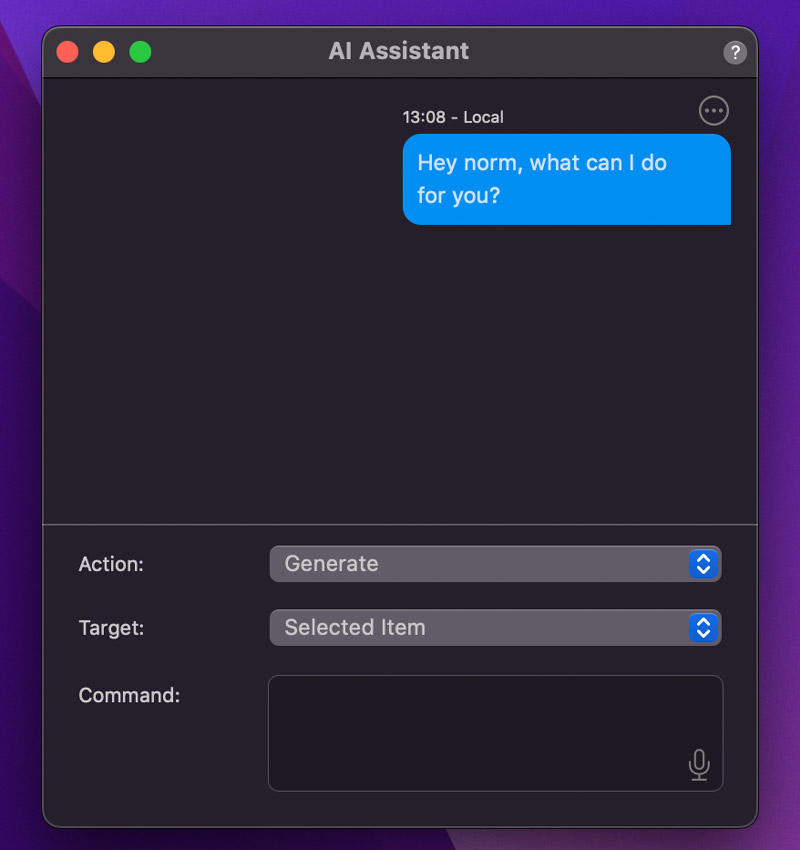

User Management
User ManagementAssesses the platforms’ capabilities in managing user roles, permissions, and accessibility.Score Components:
- Role Customization (40%): Flexibility in creating and defining user roles and
permissions. - Ease of Management (30%): User interface and tools for managing users.
- Access Control (20%): Effectiveness of access control measures for different user
levels. - Scalability (10%): Ability to manage a growing number of users efficiently.
 1.4
1.4
 5.8
5.8
🏆 Winner: Jimdo
. The user management capabilities of Blocs and Jimdo are quite different.
- Blocs allows only one user to build and edit a website.
- Jimdo’s Free, Start, and Basic Shop Plans allow website management by a single owner. The Grow Shop Plan permits two editors, including the account owner and one collaborator. The Business Plan extends collaboration to five editors, consisting of the account owner and four collaborators. The Unlimited Plan provides unlimited editors, fostering a collaborative team environment. The VIP Plan, designed for online stores, does not specify a limit on editors for websites.
Unfortunately, neither Blocs nor Jimdo provided a user roles and access levels table.
Additional Features

|

|
|
|---|---|---|
|
SSL Certificate |
|
|
|
Custom Domain |
|
|
|
Free Custom Domain Included |
|
|
|
International Domains |
|
|
|
Mobile Responsive |
|
|
|
Page Speed |
|
|
|
Website Builder Mobile App |
|
|
|
Convert a Website To An App |
|
|
|
Website Analytics |
|
|
|
Multilingual Sites |
|
|
|
Multiple Users |
|
|
User Feedback
Blocs website builder is praised for its intuitive drag-and-drop interface, making it accessible to users with varying levels of web development expertise. Its extensive library of templates and customization options, including the ability to add custom CSS and JavaScript, facilitates the rapid creation of diverse and visually appealing websites. However, users report encountering bugs and express a desire for more sophisticated customization features, indicating room for improvement. Overall, Blocs is valued for significantly streamlining the web design process, supported by a strong community and educational resources, despite its learning curve and occasional technical glitches.
Jimdo, a website builder platform, receives mixed reviews from users. Positive feedback highlights its ease of use, no-code editor, and quick website development for basic sites. However, criticisms include outdated design, limited templates, and concerns about pricing transparency. Some users appreciate it for simple projects, while others find it lacking for more complex websites. Common issues include restricted SEO in the free tier, support limitations, and late responses. The overall impression suggests Jimdo may suit beginners but could be less ideal for those seeking advanced features or modern designs.
The making of this blog
We followed a clear, step-by-step process to write and research this article.
FAQ
Which platform is better for Mac users, Blocs or Jimdo?
Can I use Jimdo for ecommerce?
How do Blocs and Jimdo compare in terms of ease of use?
Which platform offers better customer support, Blocs or Jimdo?
Are there any significant differences in pricing between Blocs and Jimdo?
Which platform is better for website speed optimization?
How do Blocs and Jimdo handle website security?










